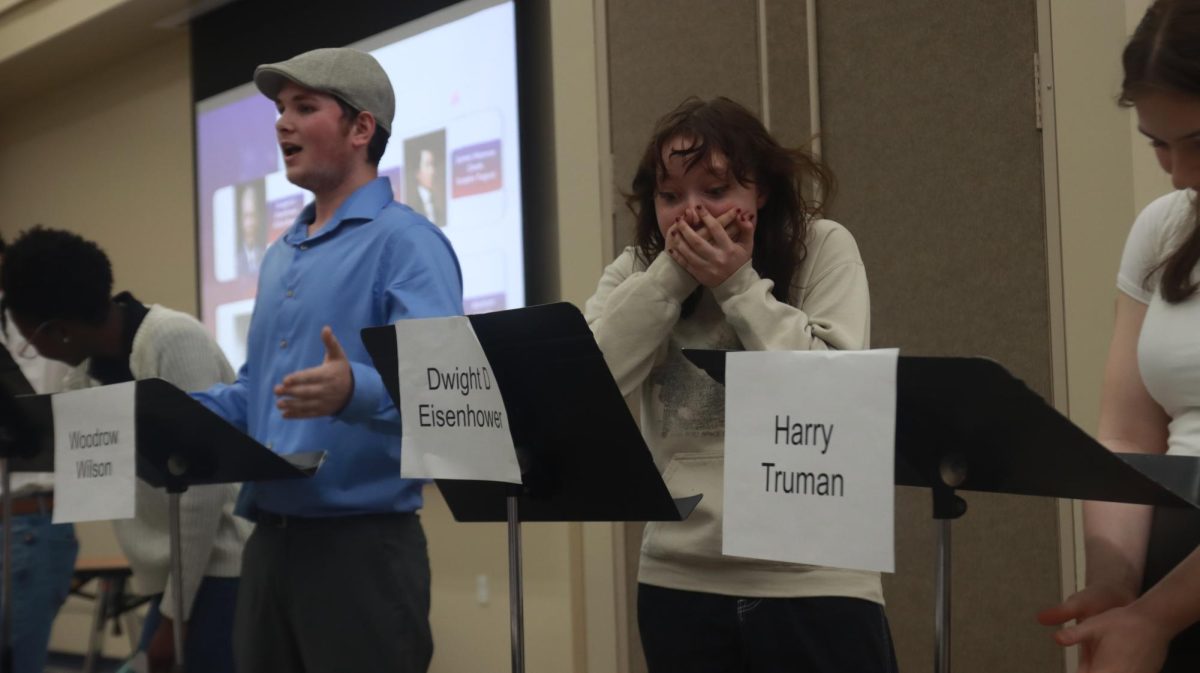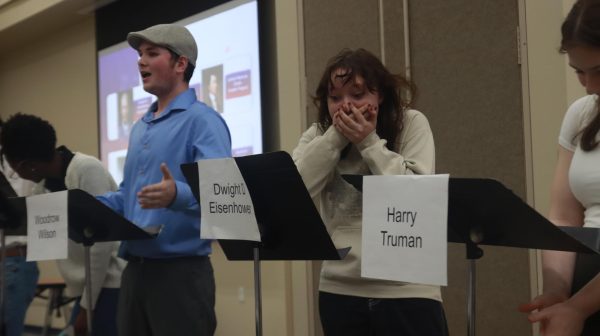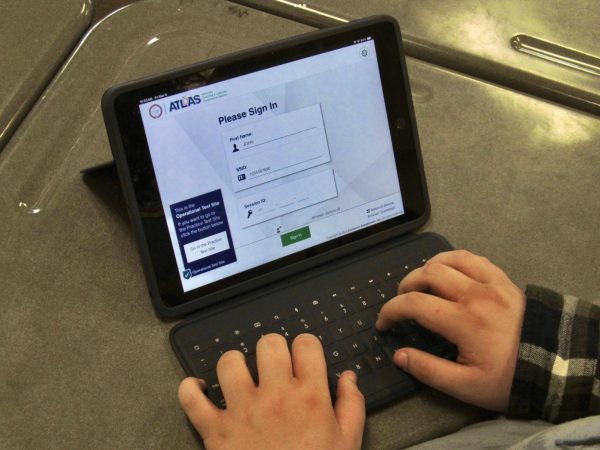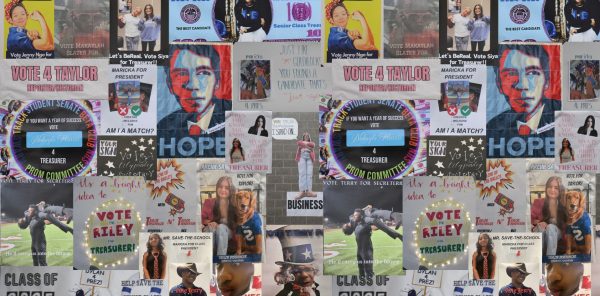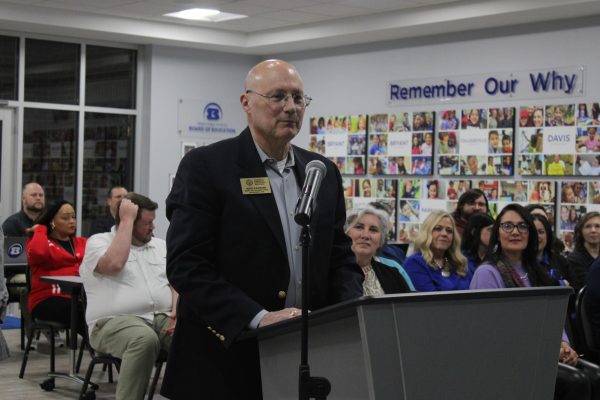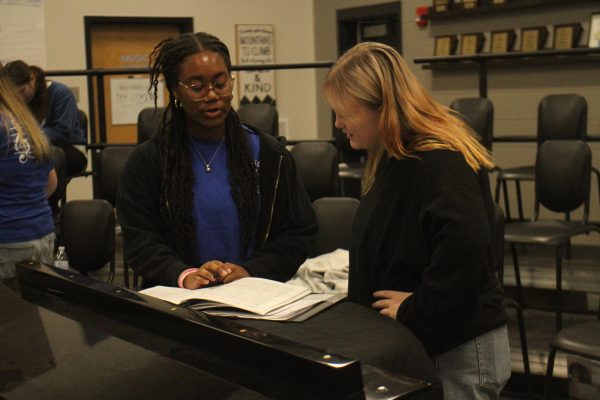A Change for the World
April 5, 2019
Global warming is a controversial topic that is heavily discussed in the United States. Americans who accept global warming as an issue outnumber those who do not by a five to one ratio. The recent trend of warmth predicts that 95% of it is most likely from human activity. The warming trend has continued in the past 35 years, but the warmest years have been recorded since 2010 with 2016 being the hottest year on record. Although it is often debated around the country, certain settings do not consider the topic for discussion.
Many people refrain from discussing the issue due to the fear of judgement and disrespect, and senior Aimee McGee keeps her opinions to herself.
“There are so many people in the world and everyone has their own opinions and beliefs, so it should be avoided in public areas,” McGee said. “In general, if people aren’t going to respect others opinions and views, it shouldn’t be discussed in public.”
With people having conflicting views, it is one of the main reasons why the topic is still controversial to this day.
“We all have different opinions on the topic,” McGee said. “As I don’t believe in it, some people do, and it tends to get heated [once it is discussed] as one doesn’t believe in the same. Some people don’t believe it exists, some people agree on some arguments to an extent, and some full heartedly agree with the matter, but there are different views and facts [out in media] which creates controversy.”
Even with it being a controversial topic, people continue to debate about it. Sophomore Aliyah Coleman thinks that global warming is a recurring issue that should be addressed.
“Global warming has been around for quite some time,” Coleman said. “It’s been argued in politics and other places. [However], it’s something that’s actually real and it’s happening before our eyes. You can go outside and see everything that the news reports. Each day in the news, there’s always something about the weather [being affected by global warming].”
According to a University of Michigan Center poll, 60 percent of respondents say that climate change is primarily or partially affected by human activity. On the other hand, those who do not believe in global warming see the issue as people emphasizing and creating problems that are not real.
“[Through my perspective], I view it as Earth going through different phases in its life span such as the ice age,” McGee said. “Earth made it through the freezing times, and it will make it through the warm times. Earth can make it though warm temperatures since it’s made to go through different phases of life, and many people lately tend to create more problems in life about certain issues that simply do not exist.”
There are five major types of pollution: air, water, soil, light, and noise pollution. For those who believe in global warming, there is a shared belief that the amount of air pollutants can be considered a reason for the issue. However, some argue that others exaggerate the effects of it.
“Although there are increased levels of pollutants that can cause issues, I believe a certain group of people are dramatizing the effects it has on the Earth,” McGee said.
Carbon dioxide emissions have increased 2.4 million pounds per second since the last three years. With the increase of pollutants in the air, businesses from around the world have a major impact on the pollutants, but most businesses do not see it as a problem. Former economics teacher John Watson believes that businesses may be a primary suspect for the cause of global warming in the aspect of saving money and profiting from it; although many businesses fail to recognize the effect they have on the environment.
“I don’t know what government could do to businesses,” Watson said. “You want to think that businesses would take it upon themselves to want to be good global citizens, but that’s not the business of business. The business of business is to make money, and anything that is going to cut down the profit margin, businesses will avoid. There are some that are high-minded, but when you look at business culture as a whole, [it’s different].”
Students consider global warming a topic that should be discussed in public schools.
“It should be more addressed in schools, because things are actually happening in real life,” Coleman said. “Some people don’t even know what global warming is or even have an idea on it, so it should be more widespread especially in the public schools.”
Not only do students think the topic should be addressed more in schools, they also think it is important to discuss in different settings, such as workplaces.
“If people have an open mind about others’ beliefs, then it should be talked about in schools, TV and jobs, so everyone can see the diversity of ideas,” McGee said.
Whether or not students think schools should discuss it more, Watson believes that there would be convincing to do within the community.
“In schools, in general, we should talk about it,” Watson said. “I don’t know how well that would go over with Saline County. Saline County is a pretty conservative county, and that side of the aisle doesn’t buy into the theory of global warming.”
Although people have contradicting views about the issue of global warming, many continue to converse about the matter and influence others as well, but they may be missing out on accurate information.
“I feel like people are very uneducated on topics like [global warming],” McGee said. “Many people, especially our age, tend to listen to media and peers and don’t even end up with the correct facts in the end. People argue [over] topics that they don’t even entirely understand themselves.”






